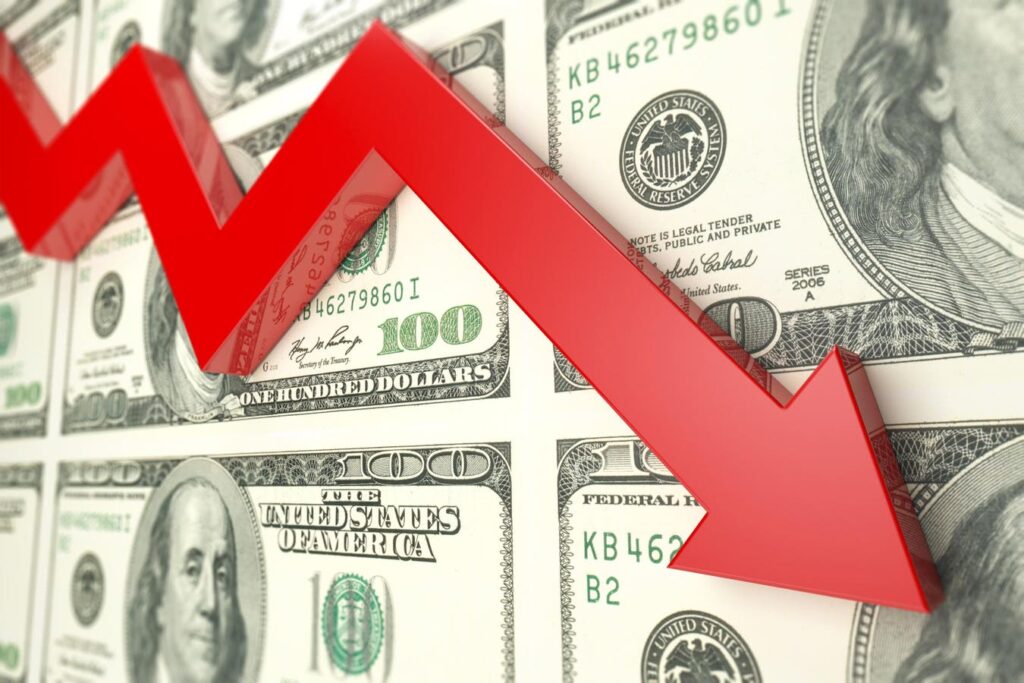A slew of economic data is signaling that a Trumpcession is around the corner. The impending economic contraction, and possibly a recession, is primarily being caused by Trump’s tariffs and the chaotic lay-off of federal workers. Additionally, deportations of undocumented immigrants, as well as the fear thereof, is causing significant uncertainty in several important economic sectors such as construction, farming, hospitality, poultry, and small businesses.
On Monday, a closely watched model of Gross Domestic Product level, the Federal Reserve Bank of Atlanta’s GDPNow, estimated significant decline of 2.8% in annualized growth for this quarter. This is a sharp contrast from +2.3% increase last week. Unlike the quarterly GDP figure, which is a lagging indicator, GDPNow is the Federal Reserve’s running estimate of real GDP growth based on available economic data for the current measured quarter.
Other recent data and surveys are also showing troubling signs for the economy.
Foreign exchange traders and stock investors are showing that they are paying very close attention to the negative economic data. The U.S. dollar declined to a three-month low against a basket of major currencies. Traders sold the dollar due to fears of how tariffs will impact American companies and in anticipation that a weakening economy will lead the Federal Reserve to lower interest rates later in the year. Declines in interest rates cause domestic and foreign investors to sell U.S. treasuries and use those dollars to buy other assets including other currencies.
It is important to remember that the stock market is a leading indicator; investors are pessimistic about the direction of corporate earnings, so they are selling their investments now before stock prices fall even further. Both the Dow Jones Industrial Average and the S&P 500 plummeted overnight. The DJIA lost over 600 points overnight. The S&P 500 has erased all of its post-election gains and is now back to its November 2024 levels. Since February 19th, since February 19th, the S&P 500 index has lost -$3.3 trillion.
Given how sensitive bank earnings are to interest rates, the level of the dollar, and stock market prices, it is no surprise that bank stock prices contributed to the overall stock market decline. America’s largest banks, Bank of America, Citibank, Goldman Sachs, and JPMorgan, also had stock price declines. Until recently, U.S. banks have been in good financial health, but with the adverse effect of Trump’s tariffs and likely deregulatory actions, banks’ capital and liquidity is likely to deteriorate in the coming months.
Read the full article here

